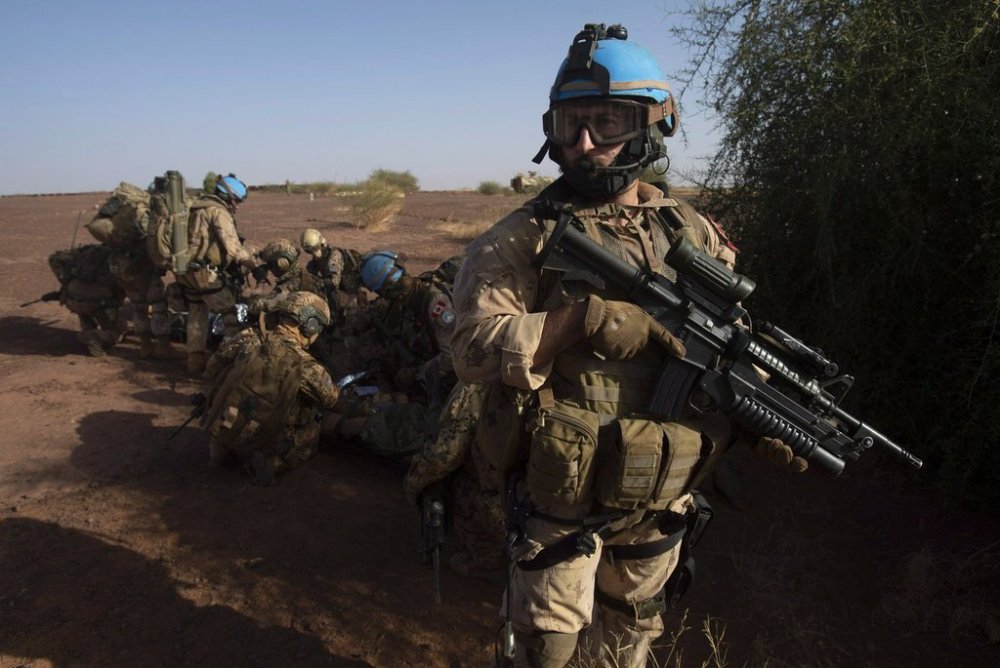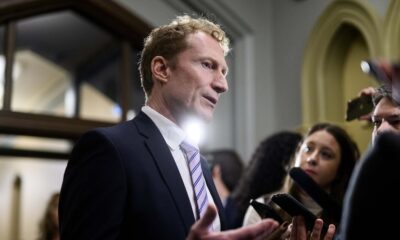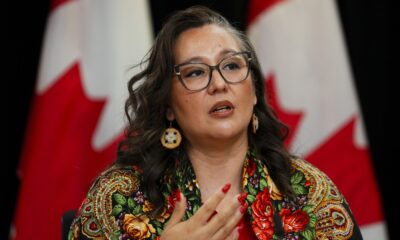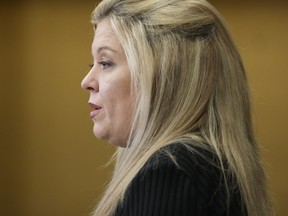Politics
Canada’s Female Military Presence in UN Peacekeeping Plummets

OTTAWA – The number of female Canadian military personnel deployed in United Nations peacekeeping missions has drastically declined, with only two women currently serving. This significant drop has raised concerns that Canada is failing to meet its commitments and may be criticized by the UN for not achieving gender representation targets.
In 2017, former Prime Minister Justin Trudeau initiated a campaign to position Canada as a leader in promoting women’s participation in peacekeeping, as part of his government’s feminist foreign policy. However, recent statistics reveal a troubling trend. According to the latest UN data, published in May, Canada has only 29 personnel deployed across 11 UN peacekeeping missions, which includes 18 military staff officers, six police officers, and five experts. Notably, none of the military officers are women, although three out of six police officers are.
Walter Dorn, a professor of defence studies at the Royal Military College of Canada, highlighted that these figures indicate a retreat from a previously prioritized political commitment. He stated, “This is embarrassing in the international community and will cause the UN to flag Canada because we’re not meeting the UN targets.” Dorn emphasized that the current situation could jeopardize Canada’s standing and potential future opportunities in international peacekeeping.
In response to inquiries regarding the low representation of women in peacekeeping missions, the Canadian government acknowledged the fluctuating numbers but only provided a limited overview. A statement from the Department of National Defence indicated that there are currently six women overall deployed in peace operations, which include four police officers in the Democratic Republic of Congo and two military members in the Middle East and South Sudan. Kened Sadiku, a spokesperson for the department, asserted that “Canada continues to champion the meaningful participation of women not only in UN peacekeeping but also in other organizations such as NATO.”
The Trudeau administration has previously committed to enhancing Canada’s contributions to UN peacekeeping missions and pledged to increase female participation. As part of this initiative, the government launched the Elsie Initiative, aimed at enhancing women’s roles in peace operations, which research has shown can improve mission success rates.
At one point, Canada appeared to be making progress. Between 2018 and 2023, during the peacekeeping mission in Mali, the percentage of Canadian women in uniform on peacekeeping missions rose to 25 percent. However, as of early 2025, the number of women in military roles serving in UN missions had fallen to just one.
Jane Boulden, a professor at the Royal Military College of Canada and Queen’s University, expressed concern over how these low numbers could tarnish Canada’s international reputation. She noted that the global context has shifted dramatically, particularly with geopolitical tensions such as Russia’s invasion of Ukraine. “Once the government made the decision to send troops to Latvia in support of NATO, then the whole idea of us providing any troops of any number to UN operations was gone,” Boulden explained.
Currently, approximately 1,900 Canadian Armed Forces members are stationed in Latvia as part of a NATO deterrence mission. Women make up about 16 percent of the regular force members within the armed forces, with around 21 percent of officers. Boulden identified the ongoing decline in peace operations, noting that only 11 UN missions are currently active worldwide, which further complicates efforts to maintain significant female representation.
Historically, Canada has prided itself on its contributions to UN peacekeeping. In the early 1990s, Canada ranked among the top contributors, with 3,300 military personnel deployed in various missions. Today, however, Canada finds itself ranked 74th in terms of personnel dispatched to UN missions.
Retired Brig.-Gen. Gregory Mitchell, a former peacekeeper, remarked that the overall drop in peacekeeping contributions reflects a broader shift in military priorities since the 1990s, when Canada’s focus transitioned towards counter-insurgency operations, particularly during the Afghanistan conflict. “A lot of senior military people at the time believed that peacekeeping is not what we should be doing,” he stated.
The current situation raises critical questions about Canada’s commitment to international peacekeeping and gender equality within its military ranks. As Canada navigates this complex landscape, the need for renewed focus on UN contributions and the empowerment of women in peacekeeping roles remains urgent.
-

 Politics4 weeks ago
Politics4 weeks agoSecwepemc First Nation Seeks Aboriginal Title Over Kamloops Area
-

 World5 months ago
World5 months agoScientists Unearth Ancient Antarctic Ice to Unlock Climate Secrets
-

 Entertainment5 months ago
Entertainment5 months agoTrump and McCormick to Announce $70 Billion Energy Investments
-

 Science5 months ago
Science5 months agoFour Astronauts Return to Earth After International Space Station Mission
-

 Lifestyle5 months ago
Lifestyle5 months agoTransLink Launches Food Truck Program to Boost Revenue in Vancouver
-

 Technology3 months ago
Technology3 months agoApple Notes Enhances Functionality with Markdown Support in macOS 26
-

 Lifestyle3 months ago
Lifestyle3 months agoManitoba’s Burger Champion Shines Again Amid Dining Innovations
-

 Top Stories2 months ago
Top Stories2 months agoUrgent Update: Fatal Crash on Highway 99 Claims Life of Pitt Meadows Man
-

 Politics4 months ago
Politics4 months agoUkrainian Tennis Star Elina Svitolina Faces Death Threats Online
-

 Sports5 months ago
Sports5 months agoSearch Underway for Missing Hunter Amid Hokkaido Bear Emergency
-

 Politics5 months ago
Politics5 months agoCarney Engages First Nations Leaders at Development Law Summit
-

 Technology5 months ago
Technology5 months agoFrosthaven Launches Early Access on July 31, 2025



















